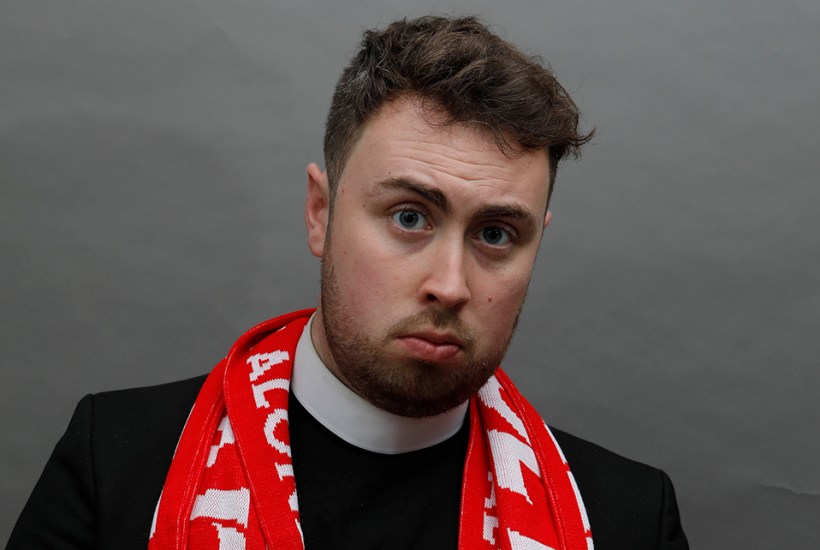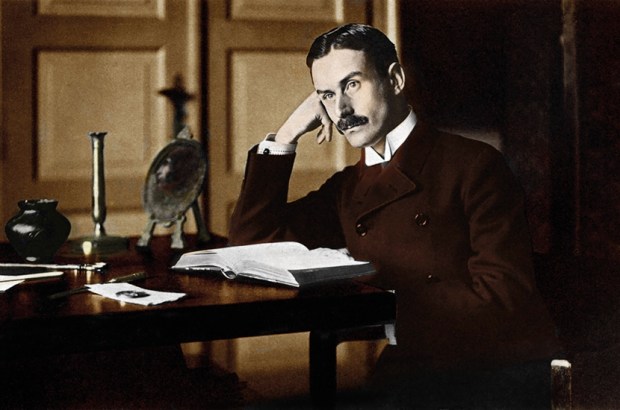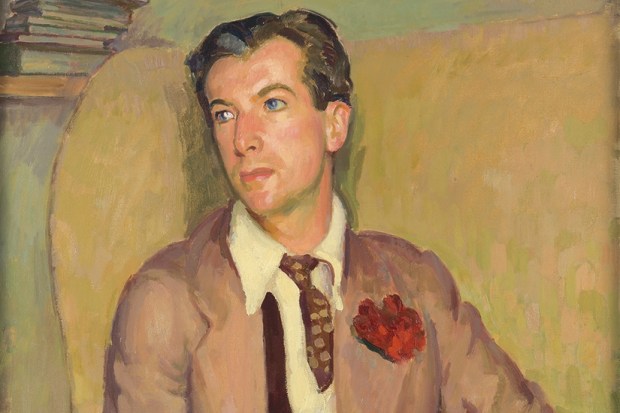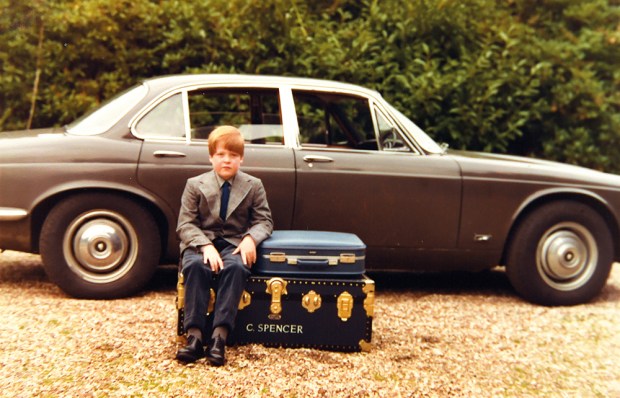In A Field Guide to the English Clergy (2018), the Revd Fergus Butler-Gallie offered an amusing and informative survey of some of the more eccentric priests and prelates to have served the Church of England over the years. In Touching Cloth, he focuses on a contemporary eccentric: himself.
The book is an account of a year in his life as a young curate at the Church of Our Lady and St Nicholas in Liverpool. It is loosely structured around the major church festivals, while at the same time making a case for some of the lesser known ones, such as Epiphany. Above all, it is a rich store of anecdotes, both sacred and profane.
Butler-Gallie is careful not to reveal too much personal information. He writes that he is the eldest of five children; his mother is a doctor, his father was an army officer whose forebears fought at Waterloo, and his grandmother was a messy eater. He has been a repeated victim of mistaken identity: on New Year’s Eve, he was taken for a drug dealer and, on Holy Saturday, for a blind man. Such confusions appear to be an occupational hazard. He describes how one of his friends, a ‘strapping rower turned cleric’, was mercilessly groped in a pub by a hen party, who refused to believe he wasn’t a stripper.
The book is replete with such stories, frequently with erotic undertones, as when he presides at a carol service which features the semi-nude performance of the Fire Brigade Dance Troupe, flaunting their ‘bulging pectorals’ to the backing track of ‘O Little Town of Bethlehem’. Even more surprising is the response of the former Archbishop of Canterbury Robert Runcie to an ordinand who proposed to give up masturbation for Lent: ‘Well, what a wonderful way to spend Easter morning.’
Weddings and funerals feature prominently. Like many clergy, he expresses a preference for the latter. As for baptisms, it comes as a surprise to learn that people find a sexual connotation to the ‘purple-headed mountain’ in the popular Victorian hymn ‘All Things Bright and Beautiful’. He remains tight-lipped about the identity of the Oscar-winning actor who sniggered at the penile imagery.
Butler-Gallie finds the humour in such moments and ably conveys it. His jocular prose is at its best when not striving for effect – as, for example, when he describes a mayor destined ‘to spend a year opening new bus shelters while dressed, inexplicably, as a Tudor’. At other times, his extended metaphors, such as ‘I’ve been offered and accepted cups of teas so anaemic that I’ve been tempted to call the NHS 111 helpline’ come dangerously close to the over-eagerness to please of the much-mocked guitar-playing vicar.
His more serious passages include fascinating nuggets of information on the saints. Who knew that St Sebastian is the patron saint of rugby players or that the word aspirin is derived from the Neapolitan St Aspren, who was frequently consulted for the relief of headaches? And it is salutary to note that the Church of England, which so often finds itself in a pickle on sexual matters, has a subsection in the document Issues on Human Sexuality on ‘the comparative virtues of same-sex nipple play’.
Butler-Gallie casts his net wide rather than deep. On current evidence, he is not one to indulge in soul-searching, nor – a fascinating account of the association of Advent and the Apocalypse apart – in theological speculation. Except for a few vague references to the mystery of death, he fails to come up with a convincing answer to the question with which he opens the book: ‘What made you become a priest?’ Rather, his concern appears to be to show that, on the one hand priests are as wayward and fallible as the rest of us (gleefully reporting his own transgressions, such as jumping the barrier rather than paying 20p to enter the Euston station lavatory, and pocketing the £10 excess change given to him by a charmless railway clerk) and, on the other, that they are set apart by the sacrament of ordination.
After all the drollery, he allows a note of bitterness to creep into the epilogue, in which he relates how, after his departure from Liverpool, he failed to obtain a salaried parish post and has temporarily abandoned the ministry. He can, however, rest assured that, whatever his failure to progress up the hierarchy of the Church, he has an established place as one of its most acute and amusing chroniclers.
Got something to add? Join the discussion and comment below.
Get 10 issues for just $10
Subscribe to The Spectator Australia today for the next 10 magazine issues, plus full online access, for just $10.
You might disagree with half of it, but you’ll enjoy reading all of it. Try your first month for free, then just $2 a week for the remainder of your first year.














Comments
Don't miss out
Join the conversation with other Spectator Australia readers. Subscribe to leave a comment.
SUBSCRIBEAlready a subscriber? Log in